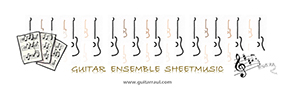Gideon Brettler
https://www.academia.edu/38192
Books published for the guitar in its first 100 years in print were primarily intended for amateur consumption. The commercial nature of music printing had significant impact on the content and character of these books. Sixteenth-century guitar books generally conformed to the musical practices of more popular plucked instruments such as the lute and vihuela, containing little pedagogical information. Early 17th century solo guitar books were primarily pedagogical, offering detailed instruction on various aspects of performance. Two central characteristics manifest themselves throughout this repertoire: simplicity and novelty.
This study traces developments in the 16th and early 17th century guitar repertoire, contextualizing changes in connection to the impact of print technology on European society. Over the course of this study numerous connections between the changes affected by print on European society, and printed guitar music are demonstrated. An analysis of representative alfabeto books published between 1606 and 1646 demonstrate the manner in which the opposing forces of conformity and individuality in the guitar repertoire are the byproduct of print technology
The Impact of Print Technology on the Early Guitar Repertoire





